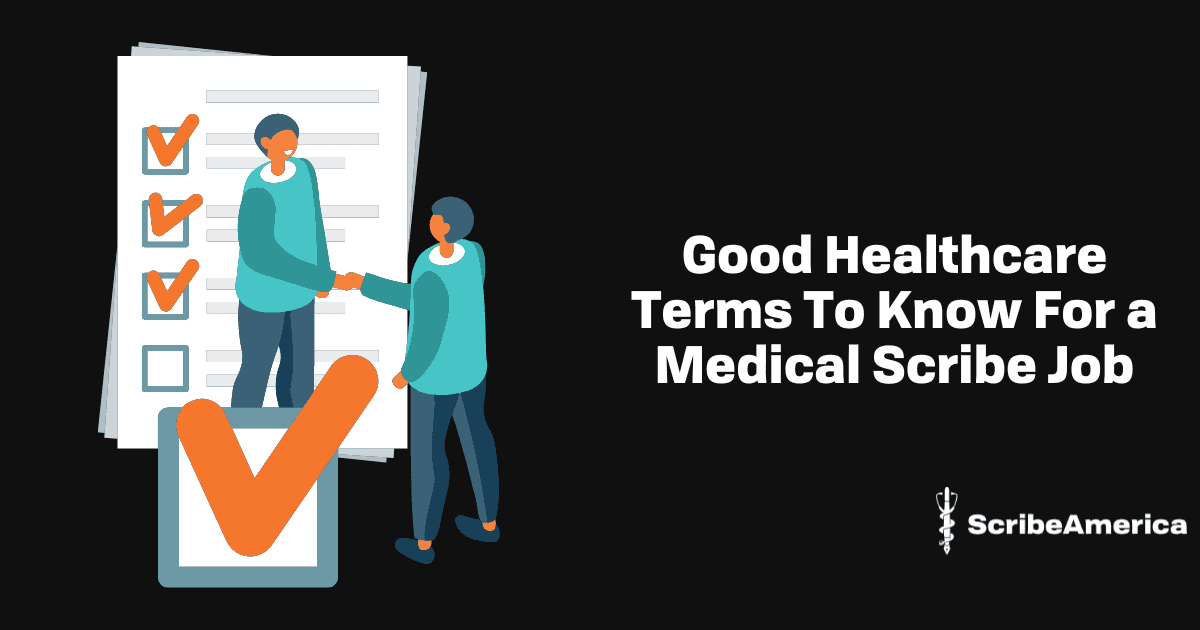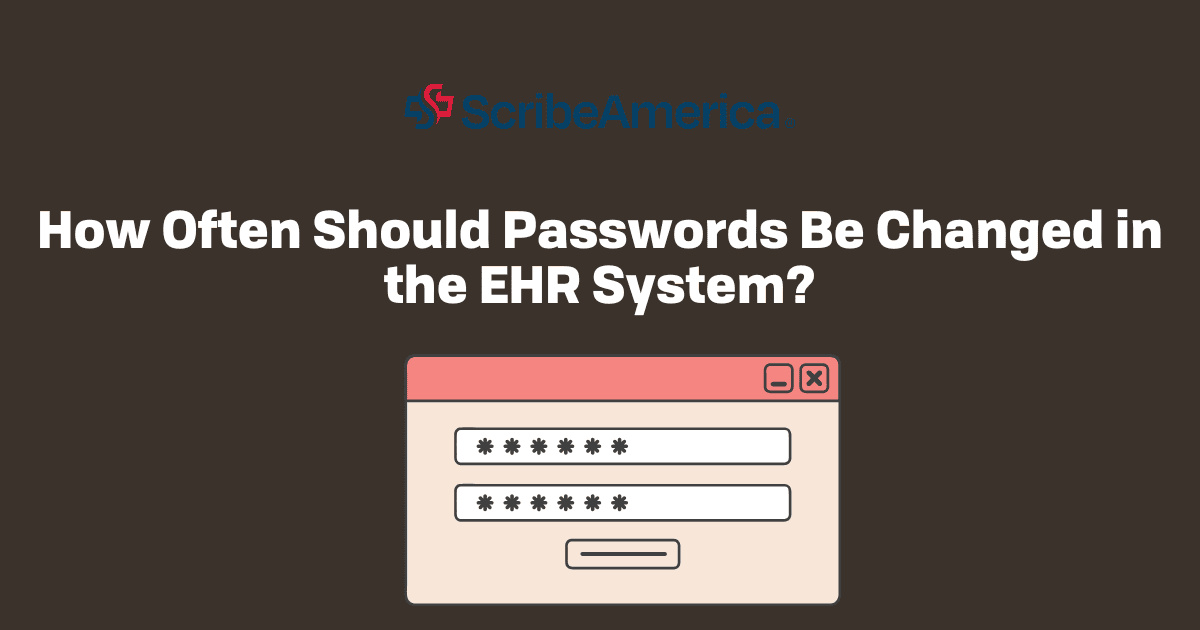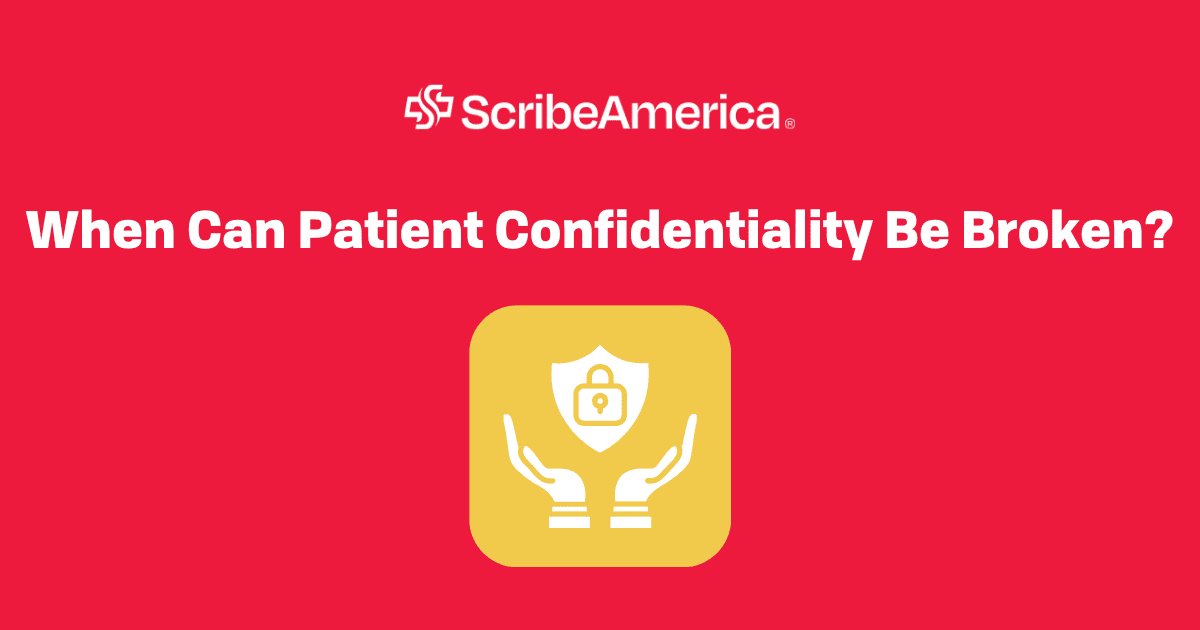If you’re starting a career as a medical scribe, you’ll need to familiarize yourself with the language of medicine. Learning the right good healthcare terms for a medical scribe job can make all the difference in your efficiency and confidence. Whether you’re documenting patient encounters or assisting physicians, these terms will help you navigate the fast-paced environment with ease. Let’s dive into 15 key phrases every medical scribe should know.
Good phrases every medical scribe should know
- Electronic Health Record (EHR)
The backbone of modern healthcare documentation, an EHR is a digital version of a patient’s medical history. It’s crucial you understand this system, because, as a scribe, you’ll spend a significant amount of time updating EHRs.
- SOAP Notes
SOAP stands for Subjective, Objective, Assessment, and Plan. This structured format is used to document patient encounters. Mastering SOAP notes is key to ensuring clear and concise documentation.
- Differential diagnosis
This term refers to a list of possible conditions that could explain a patient’s symptoms. Physicians often discuss differential diagnoses during patient visits, and you’ll need to document them accurately.
- HPI (History of Present Illness)
The HPI is a detailed account of a patient’s current symptoms, including their onset, duration, and severity. It’s a critical part of the patient’s story and one of the good healthcare terms to know for a medical scribe job.

- ROS (Review of Systems)
The ROS is a comprehensive checklist of a patient’s symptoms across various body systems. It helps physicians identify potential issues that might not be immediately obvious.
- CPT codes (Current Procedural Terminology)
These codes are used to describe medical procedures and services for billing purposes. While you may not be responsible for coding, understanding CPT codes can help you better comprehend the documentation process.
- ICD-10 codes (International Classification of Diseases)
ICD-10 codes are used to classify and code diagnoses. Familiarity with these codes is essential for quality record-keeping.
- Vital signs
Vital signs include measurements like blood pressure, heart rate, temperature, and respiratory rate. These are often the first things documented during a patient visit.
- Chief complaint (CC)
The CC is the primary reason a patient is seeking medical care. It’s typically the starting point for any patient encounter and one of the most good phrases medical scribe professionals use daily.
- Progress Note
A progress note documents the ongoing care of a patient, including updates on their condition and treatment plan. It’s a key part of maintaining continuity in patient care.
- Discharge summary
This document outlines a patient’s hospital stay, including diagnoses, treatments, and follow-up instructions. It’s essential for ensuring a smooth transition from hospital to home care.
- Informed consent
Informed consent is the process of ensuring a patient understands the risks and benefits of a procedure before agreeing to it. Documenting this process is a critical part of patient care.
- Telemedicine
With the rise of virtual healthcare, telemedicine has become a common term. It refers to remote clinical services, and as a scribe, you may need to document these virtual visits. To learn more about effective communication in telemedicine, read our article.
- Chronic vs. acute
Chronic conditions are long-term (e.g., diabetes), while acute conditions are short-term (e.g., a broken bone). Distinguishing between the two is vital for accurate documentation.
- HIPAA (Health Insurance Portability and Accountability Act)
HIPAA ensures patient privacy and confidentiality. As a scribe, you’ll handle sensitive information, so understanding HIPAA regulations is non-negotiable.
The takeaway
Mastering these good healthcare terms to know for a medical scribe job will not only make you more effective in your role but also help you build trust with physicians and other healthcare professionals.
By memorizing these phrases, you’ll be well-equipped to handle the demands of the medical scribe job. Remember, in healthcare, knowledge is power. So, roll up your sleeves, dive into the terminology, and get ready to shine in your new role!





